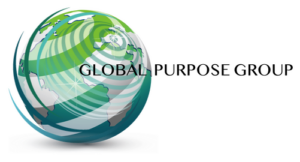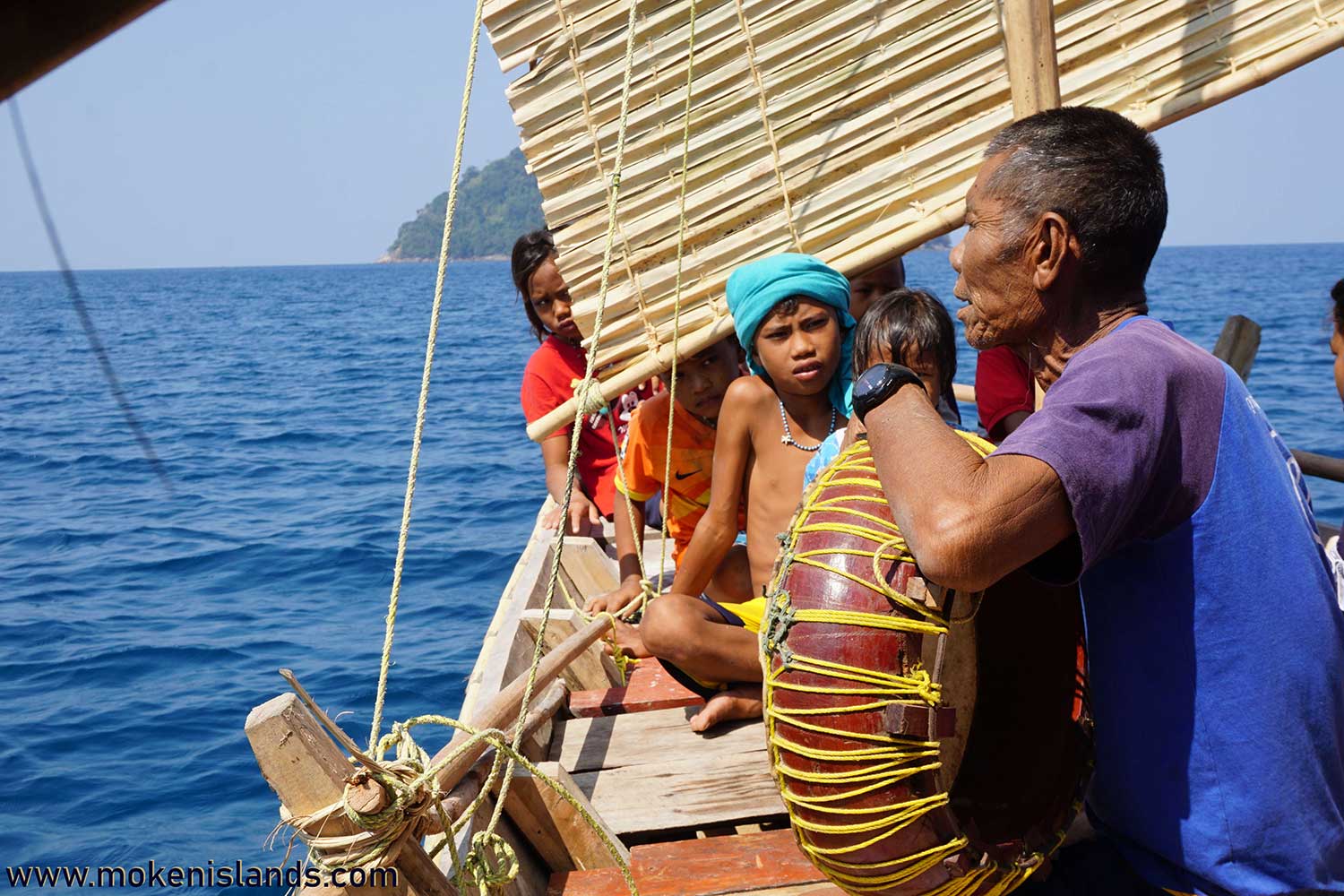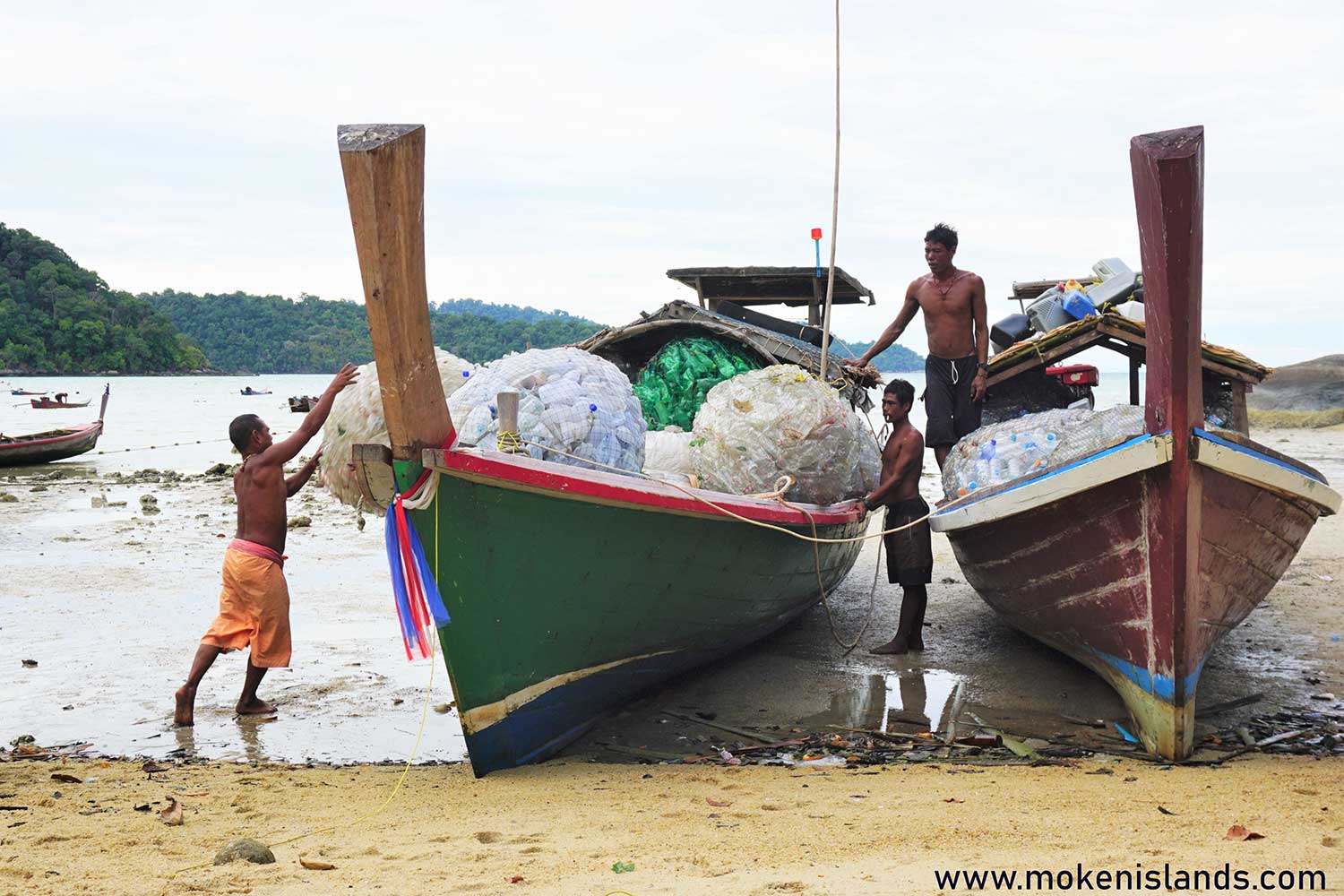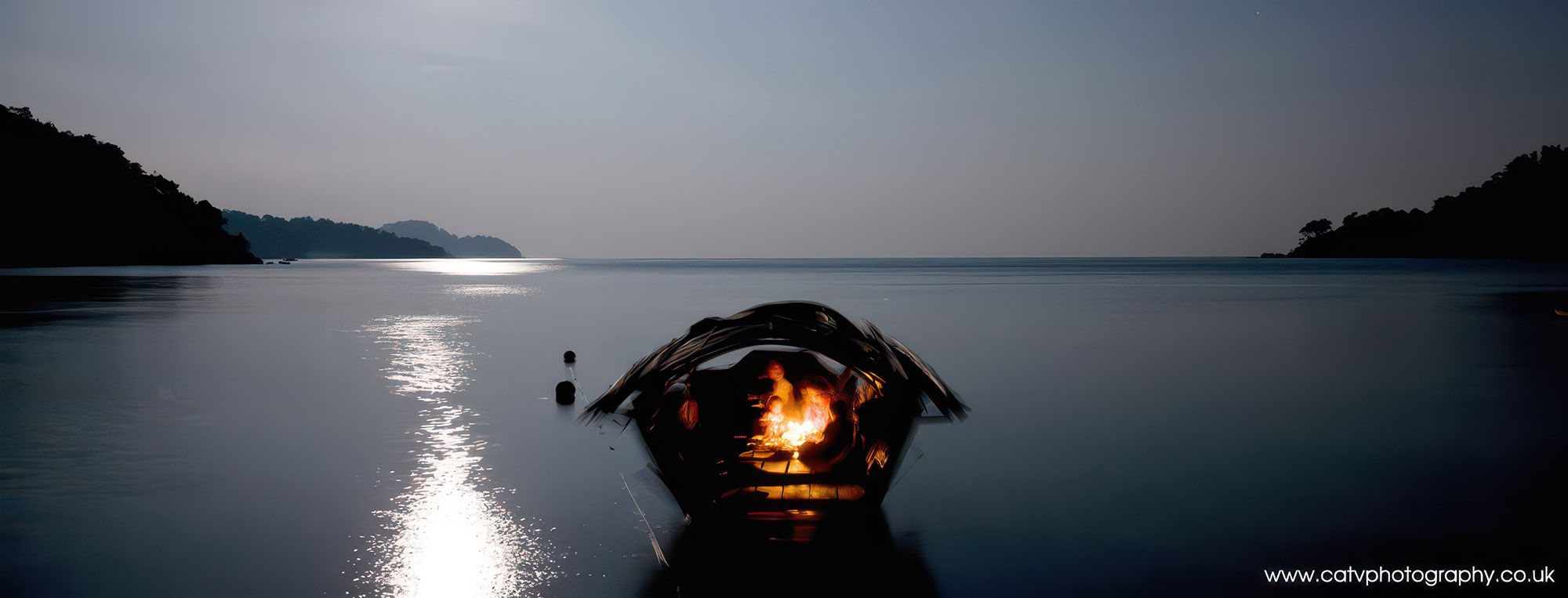
Welcome to The Moken Islands
The Moken are a fascinating people with a unique, lifestyle. Unfortunately, the widespread media coverage and visits from foreign tourists over the last few years have done little to empower the Moken in developing their community and maintaining their culture. The Global Purpose Group are determined to help the Moken preserve their ancient culture.
For thousands of years the Moken people have lived on the Andaman Coast. Traditionally they lived in their Kabang houseboats only staying on land during the monsoon season.
They are excellent free-divers and spear fishers. The sea provided for nearly all their needs.
In modern times the Moken have been forced to give up their nomadic lifestyle. They now live in a village on Koh Surin or on the mainland. They look for work in the local National Park, local tourism or the fishing industry.
Identifying The Problems
Traditional fishing no longer sustains a family
The Moken are restricted in their fishing area and subject to patrols. They are not allowed to sell their catch from Koh Surin on the mainland.
Industrial boats frequently violate laws against fishing on Koh Surin. They also fish using illegal methods which seriously depletes the fish stock.
Industrial fishing companies often employ Moken for their incredible diving skills. Payment is very poor and conditions are often life-threatening.
Roaming the oceans is no longer possible
Regulations of the National Park forbid logging. Without a large tree no ‘Kabang’ houseboats can be made.
Many Moken have no birth certificate or passport. This makes it difficult and very dangerous to travel the islands between Thailand and Myanmar.
Tourism development and National Park regulations limit the places accessible to Moken. The lights from squid-fishing boats make navigation at night difficult.
Mainland jobs pay very poorly
Integration into Thai society is difficult for the Moken due to stigmatization, and ignorance of their nomadic roots.
Many suffer economic hardship. Often due to unemployment, worker’s exploitation and difficult access to education.
The lack of prospects for many families leads to decay of communities and this often leads to alcoholism.
Projects
Moken Ancestral Knowledge
In 2021 the Moken started a project to support the passing on of cultural-specific knowledge.
The Moken teacher Keng schedules trips for the students of the Moken school on the Surin islands. This school is the only one that teaches Moken kids only. That means it is the only place where Moken kids are not culturally discriminated.
Here they can learn the diversity of skills and knowledge of the traditional Moken way of life. They learn about the building of boats and the tools needed for that. Freediving, spearfishing, making of musical instruments, music, songs, storytelling, reading of stars to navigate the sea, local medicinal herbs and plants, weaving leaves to create mats and boxes, shamanism and more.
It is only possible to teach these skills whilst the knowledge is still present in the older generation of Moken.
Surin Plastic Free Bays
This project was the inspiration of Nin, a Moken man from the Surin islands.
He said that he had been thinking for many years of how their 80 plus ancestral beaches and bays could be cleared from all the washed-up debris. It was decided that a beach restoration team would receive monthly salaries to start cleaning their home islands from washed up ocean plastics.
We were contacted by Michel from the Jan and Oscar Foundation who started the recycling company “Ranong Recycling for Environment Social Enterprise”. Their mission was to recycle ocean plastics and their focus was to inspire sea-based communities, particularly the Moken, to gain extra income by offering high buying prices for the recyclables.
Now this discarded rubbish is used by Ecoalf, a Spanish fashion company who uses #1 PET bottles to create sustainable clothing. Also, Tide Ocean Material, who bought #2 HDPE and #5 PP plastics to create high quality pellets that can then be transformed into notebook cases or wristbands for watches.
Emergency Medical Fund
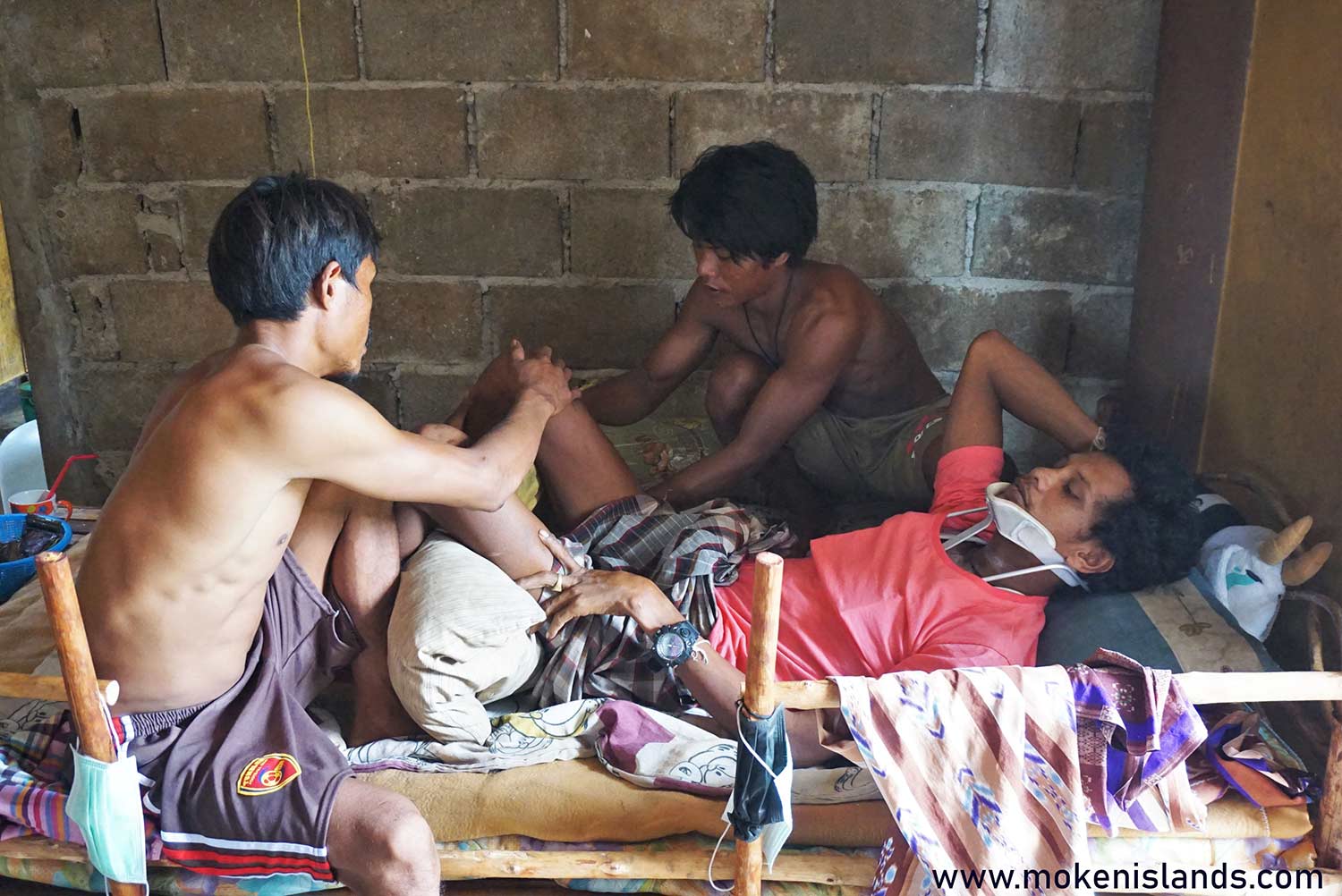
There is always a medical emergency. Whether someone needs an escort from the island to the hospital or the fees for undergoing an unusual treatment there is always money involved that the Moken often don’t possess. This fund goes to medical care to be given out freely when needed.
Children’s Delicious Nutrition
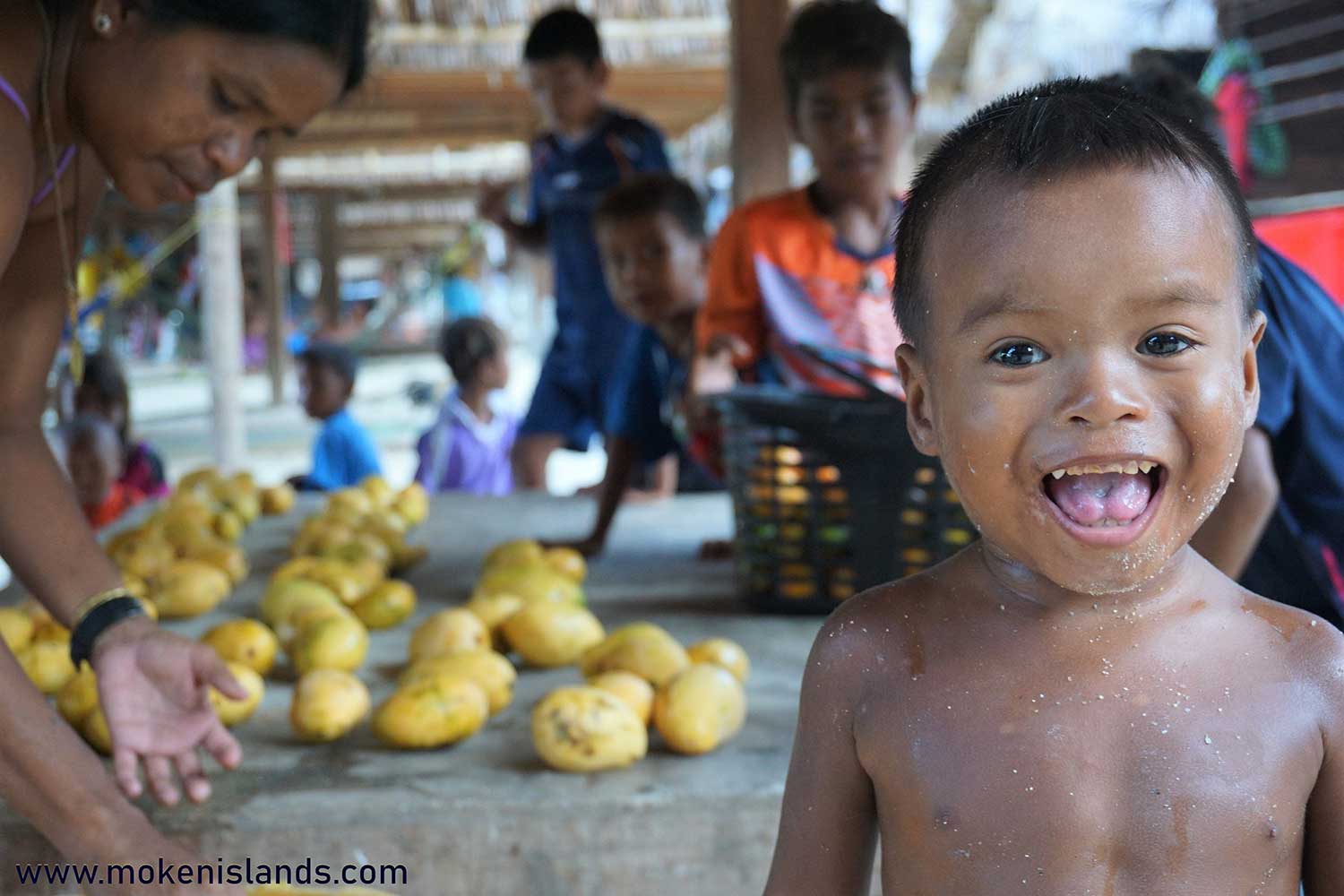
Healthy fresh fruits are rare on the islands. Moving regularly between the mainland and the islands, we will use this fund for the Moken children’s delight and the occasional joy of sweet Mangos and Papayas.
